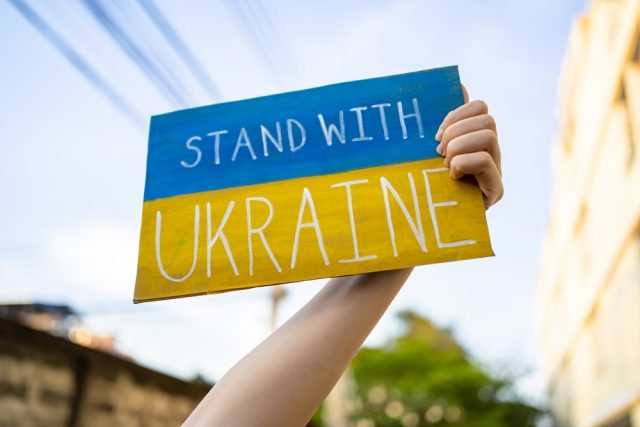
In a climate of ever-increasing international tension, the Foreign Affairs Council of the European Union has approved the 15th package of sanctions against Russia.
The decision, which came after an in-depth analysis of the geopolitical situation, aims to further increase pressure on Moscow for its role in the war in Ukraine and for actions that undermine the territorial integrity, sovereignty and independence of the invaded country.
Targeted measures against individuals and entities
The new package of sanctions includes restrictive measures against 54 individuals and 30 entities, all deemed responsible for actions that threaten the integrity of Ukraine. The individuals targeted include senior figures in the Russian political and military structure, businessmen and members of the armed forces who allegedly played an active role in the ongoing war. The entities, on the other hand, include companies and organizations linked to the defence sector, logistics and maritime transport. The sanctions include an asset freeze within the EU, a ban on entry into member countries, and trade restrictions, all with the aim of interrupting the flow of strategic resources to the Russian military and government apparatus.
Putin’s shadow fleet in the crosshairs
One of the most significant innovations in this package is the inclusion of Vladimir Putin’s so-called “shadow fleet”. This is a parallel system of non-European oil tankers and cargo ships used to evade previously imposed sanctions and to circumvent the internationally established cap on oil prices. These ships are suspected of transporting Russian oil and energy products to markets that do not adhere to the Western sanctions regime. The ships identified and blacklisted are 52. These units have been identified as being involved not only in the illegal export of energy, but also in the transport of military equipment and the trade of stolen Ukrainian grain. The EU, through these measures, aims to interrupt the logistical channels that Moscow uses to finance and support the conflict, as well as counter the systematic violation of international rules on maritime trade.
A blow to the Russian energy sector
The new sanctions also aim to hit one of Russia’s main economic pillars: the energy sector. Although previous restrictions have already had a significant impact, Moscow has found alternative means to continue exporting oil and gas. The “shadow fleet” is a crucial mechanism in this strategy. The crackdown on oil tankers therefore aims to cut off a key source of income for the Kremlin, making it more difficult to access global markets and increasing its operating costs. In addition to the energy sector, the measures focus on other strategic areas, such as the supply of technological materials and critical components that could be used in weapons production. The aim is to progressively reduce Russia’s ability to sustain a prolonged war by limiting access to vital resources.
Moscow’s response
Unsurprisingly, Russia reacted harshly to the news of the new sanctions package. The government in Moscow called these measures “economic aggression” and threatened countermeasures against the European Union. According to Russian authorities, these decisions will only strengthen their commitment to pursuing strategic objectives in Ukraine. Meanwhile, the Kremlin continues to seek new allies and trading partners outside the Western bloc. Countries such as China, India and other members of the so-called “global South” remain privileged interlocutors for Moscow, representing an outlet for energy exports and international trade.
The role of the European Union
For the European Union, the adoption of new sanctions against Russia is not only a demonstration of political unity, but also a sign of concrete support for Ukraine. However, the restrictive measures inevitably also have consequences for European economies. The bloc is aware that targeting Russia also means facing increased energy costs and tensions in global markets. For this reason, in parallel with the sanctions, the EU is working to diversify energy sources, promote renewable energy and strengthen the economic resilience of its Member States.
With the approval of the fifteenth package of sanctions, the European Union reaffirms its determination to maintain a tough line against Russia. The choice to target the “shadow fleet” and to expand the number of sanctioned individuals and entities is a clear signal: the EU will not tolerate any violation of international rules and will continue to support Ukraine in its fight for sovereignty. The coming weeks will be crucial to assess the effectiveness of these measures and to understand how Moscow will respond to this new chapter in the economic and political confrontation. One thing is certain: international pressure on Russia is set to increase, while the European Union continues on the path of commitment and solidarity towards Ukraine.



 Subscribe
Subscribe